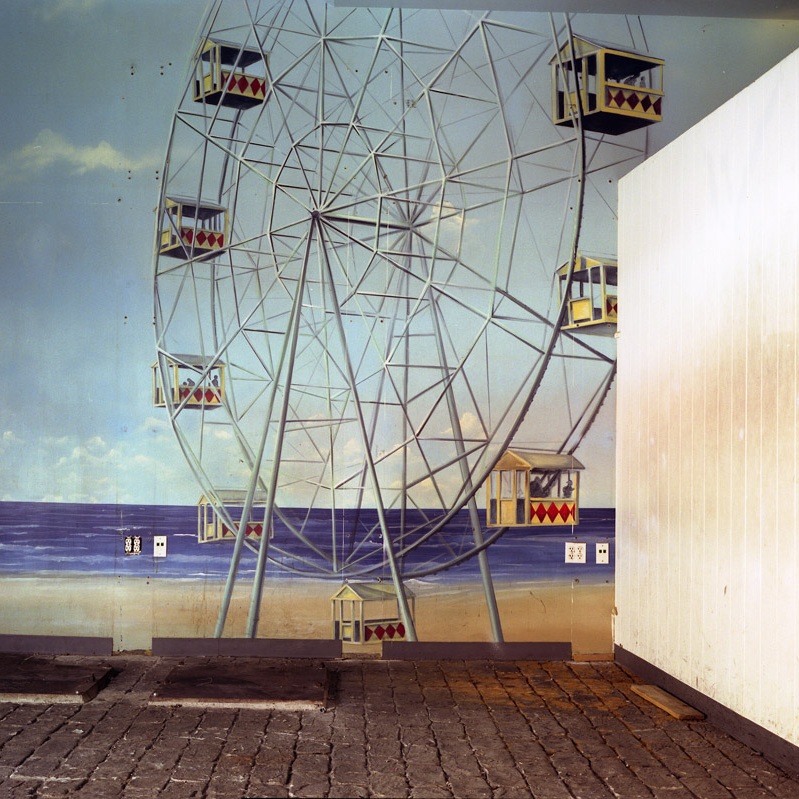Summer Reading List | Fiona Sze-Lorrain
Installation photo from A Blue Dark at the Institute Library, New Haven, 2019 (photo © Fritz Horstman)
Summer Reading List | Fiona Sze-Lorrain
A Sick Planet
Guy Debord, translated by Donald Nicholson-Smith
This book contains three essays by Guy Debord: “The Decline and Fall of the ‘Spectacular’ Commodity-Economy,” “The Explosion Point of Ideology in China,” and “A Sick Planet.” I can’t stress enough the pertinence and urgency of Debord’s ideas in these texts, which were first published or written between 1966 and 1971. I quote him: “‘Pollution’ is in fashion today, exactly in the same way as revolution: it dominates the whole life of society, and it is represented in illusory form in the spectacle. It is the subject of mind-numbing chatter in a plethora of erroneous and mystifying writing and speech, yet it really does have everyone by the throat. It is on display everywhere as ideology, yet it is continually gaining ground as a material development.”
Dark Harbor
Mark Strand
The former U.S. Poet Laureate Mark Strand passed away in 2014 at age eighty. Since then, I have been revisiting Dark Harbor (1993), which, in my opinion, is one of Strand’s best collections. The poet muses, “I am writing from a place you have never been, / Where the trains don’t run, and planes / Don’t land, a place to the west, // Where heavy hedges of snow surround each house, / Where the wind screams at the moon’s blank face, / Where the people are plain, and fashions, // If they come, come late and are seen / As forms of oppression, sources of sorrow.” Dark Harbor contains several of my favorite poems. It was written as a long sequence of forty-five poems (and a proem), although each piece stands in its own right and can be read independently.
Stick Out Your Tongue
Ma Jian, translated by Flora Drew
Few contemporary Chinese writers approach Tibet without self-censorship or Orientalism. After the publication of Stick Out Your Tongue in 1987, Ma Jian was targeted and subsequently banned as a writer in his native country. “A hunted animal will always try to run as far away as possible. The further it runs, the safe it feels,” he states at the start of the afterword, written eighteen years later in his London home. Looking back, he says, “I wanted to express my confusion and bewilderment, my sympathy for the marginalized and dispossessed, my frustration with blind faith, and my distress at the losses we incur on the march to so-called ‘civilization.’ I wanted to write about Tibet as I had experienced it, as both a reality and a state of mind. I let my guard down and wrote without thought of what the repercussions might be.” Ma Jian’s exile and literary life shares the destiny of Tibet, as one may learn from this slim book, which is based on, or inspired by, his travels and experiences in Tibet during the eighties.
Chiaroscuro, 2 a.m. (2019). Ink and washi, Fiona Sze-Lorrain and Fritz Horstman. (photo© Sze-Lorrain)
Fiona Sze-Lorrain is a poet, literary translator, editor, and zheng harpist. She writes and translates in English, French, Chinese, and occasionally Spanish. Her three books of poetry are Water the Moon (2010), My Funeral Gondola (2013), and The Ruined Elegance (2016), which was published by Princeton and a finalist of the Los Angeles Times Book Prize. She lives in Paris. The exhibition A Blue Dark, Sze-Lorrain’s collaboration with Fritz Horstman, opened this June at Gallery Upstairs of the Institute Library in New Haven, Connecticut, and is on view until September 7. It features Sze-Lorrain’s handwritten poems and translations on washi prepared by Horstman, together with his ink drawings.
The Scope of Darkness (2019). Ink and washi, Fiona Sze-Lorrain and Fritz Horstman. (photo © Sze-Lorrain)
Interested in submitting your list of summer reads? Check out the directions here.









